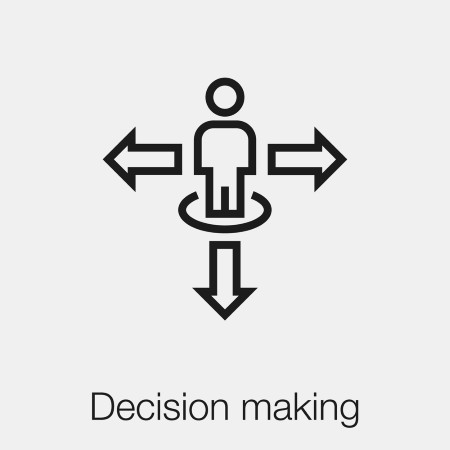The Decision-Making Process Is A Team Activity

It can be difficult to make decisions that seem like a mysterious, mystical
process however, it's actually an actual science. If your company's team has
issues in group decision-making, take comfort in the fact that you're not alone.
Consulting firm McKinsey discovered that 72% of managers believed their company
made bad decisions as often, or more often as they made good ones. Delays or
poor decisions can cause significant losses in terms of losses in profits, and
wasted time, resources and talent.
Psychology and economists have been studying the many issues that hinder
group decision-making over the last many years, helping them understand on how
to get around these obstacles. If you're looking for ways to help your team make
better decisions in a group it might be beneficial to give these strategies an
attempt.
Create the proper conditions for group decision-making
Many group decision-making meetings end in failure before they even start.
Undefined roles, insufficient details as well as a general lack of team
alignment can all foil the process of making decisions. One of the most
straightforward things you can do for your team is to train your team for making
a decision.
Make sure you involve the right people
If your decision-makers are too alike (in their roles, seniority or even
view), your decision will suffer. Different groups are more effective at making
decisions as they bring different views to the table. Many companies suffer from
an "inclusion gap" where decision-making teams are more homogeneous than the
entire organization. Once you choose additional hints on random letter, sneak a peek
here.
Come ready to choose
Senior partner of McKinsey Aaron De Smet distinguishes between information
sharing and decision meetings. Many organizations plan to hold decisions
meetings, but the group gets sidetracked by information sharing: too many
questions, discussions, and clarifications.
You can speed up the process of making decisions by providing key details
ahead of time and inviting everyone to contribute ideas and solutions.
Check job titles at the door
In order to ensure that everyone has the opportunity to share ideas and opinions freely It is important to treat all everyone in a way that is equal, regardless of position or level of experience. This can be achieved by setting ground rules to discuss topics such as:
Each team member gets the chance to discuss their ideas before they are all discussed.
The senior members should speak first to ensure they are not dominating the conversation or influencing other members.
Discussions are open to everyone's thoughts regardless of skills or experiences of the participants.
Be attentive and don't interrupt.
How to make good decisions as part of a team
Each decision is unique and there isn't a single formula for a perfect
discussion. These suggestions can be utilized to assist you in finding an answer
in nearly any circumstance.
The problem must be defined Not the solution.
The the way the issue is framed will determine how others perceive the issue.
If you frame the issue too narrow ("Should we modify our survey on customer
satisfaction?" ?"), you're restricting discussion before it's even begun. Paul
Nutt, a professor at Ohio State University, found that leadership teams often
only think about one option, even though having several options greatly
increases the quality and number of the decisions.
Instead, you should be aware of the problem, but be open-minded about
possible solutions ("How can we better understand the requirements of our
customers ?"), so that you're not steering your team towards an uninformed
conclusion.
Encourage to think critically
We're all wired to be part of the crowd. This often causes a faulty group
decision-making. Social scientists have discovered that the person who speaks
first (or the first idea to receive initial support) has a strong influence on
group decision making
people generally want to agree with each other. Also, the first proposed
solution might end up getting picked even if it's not the best.
Encourage group members to be honest and respectful to one another to stop brainstorming becoming groupthink. Leaders of teams should demonstrate this by asking questions to everyone, like "Tell me why you believe this?" as well as "Can you share proof to support that idea or theory?"
Comments
Post a Comment